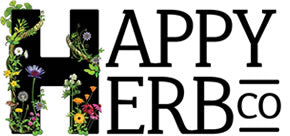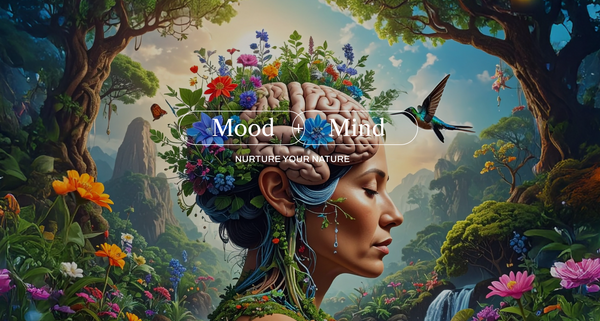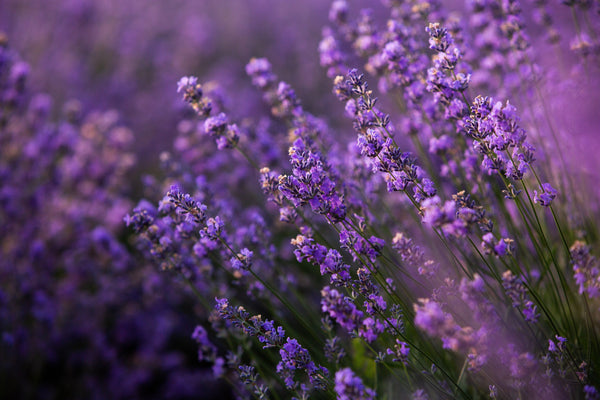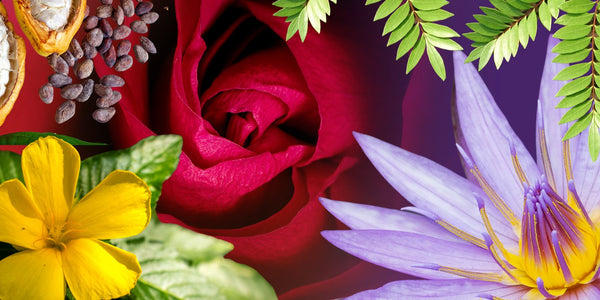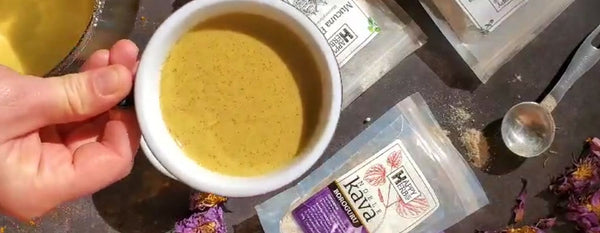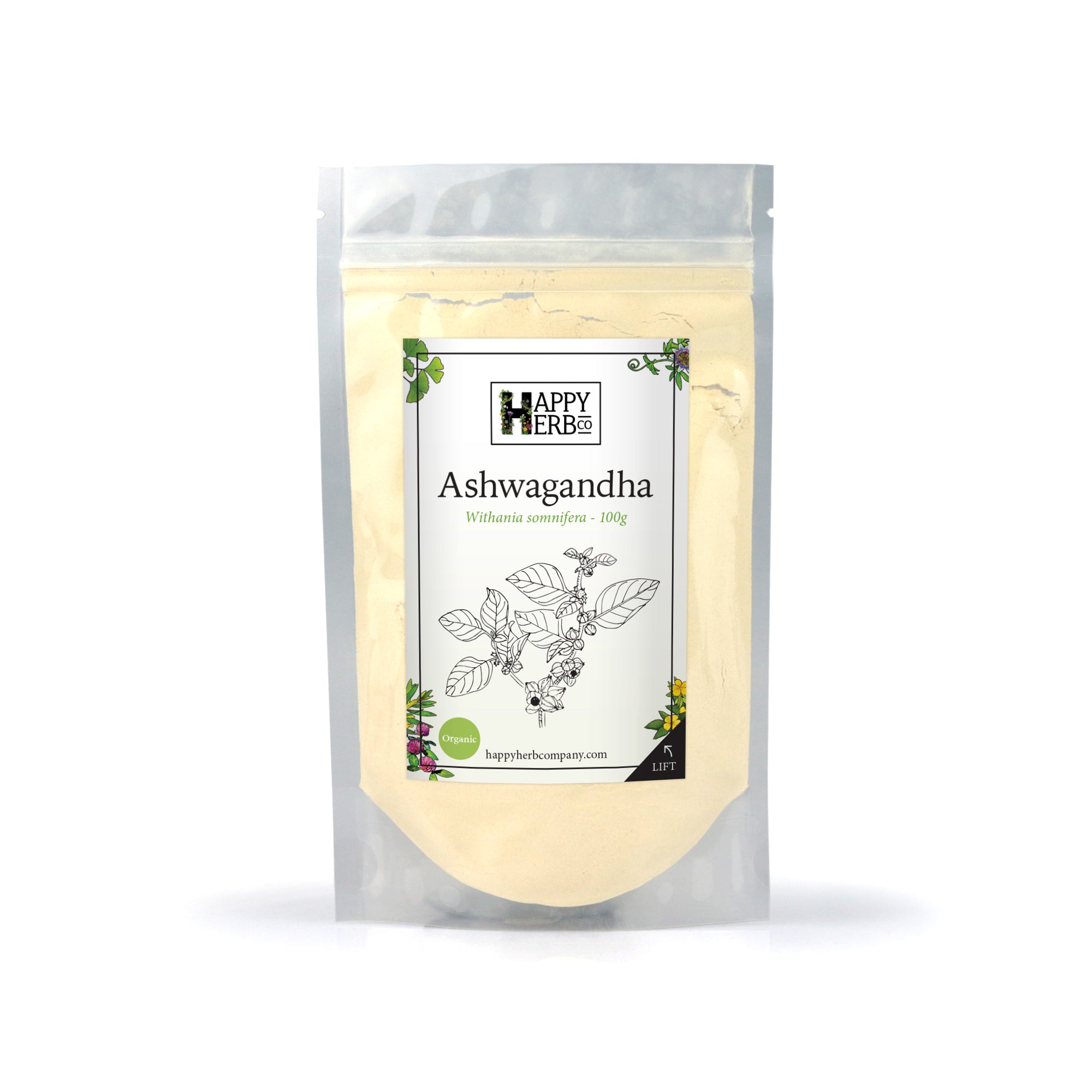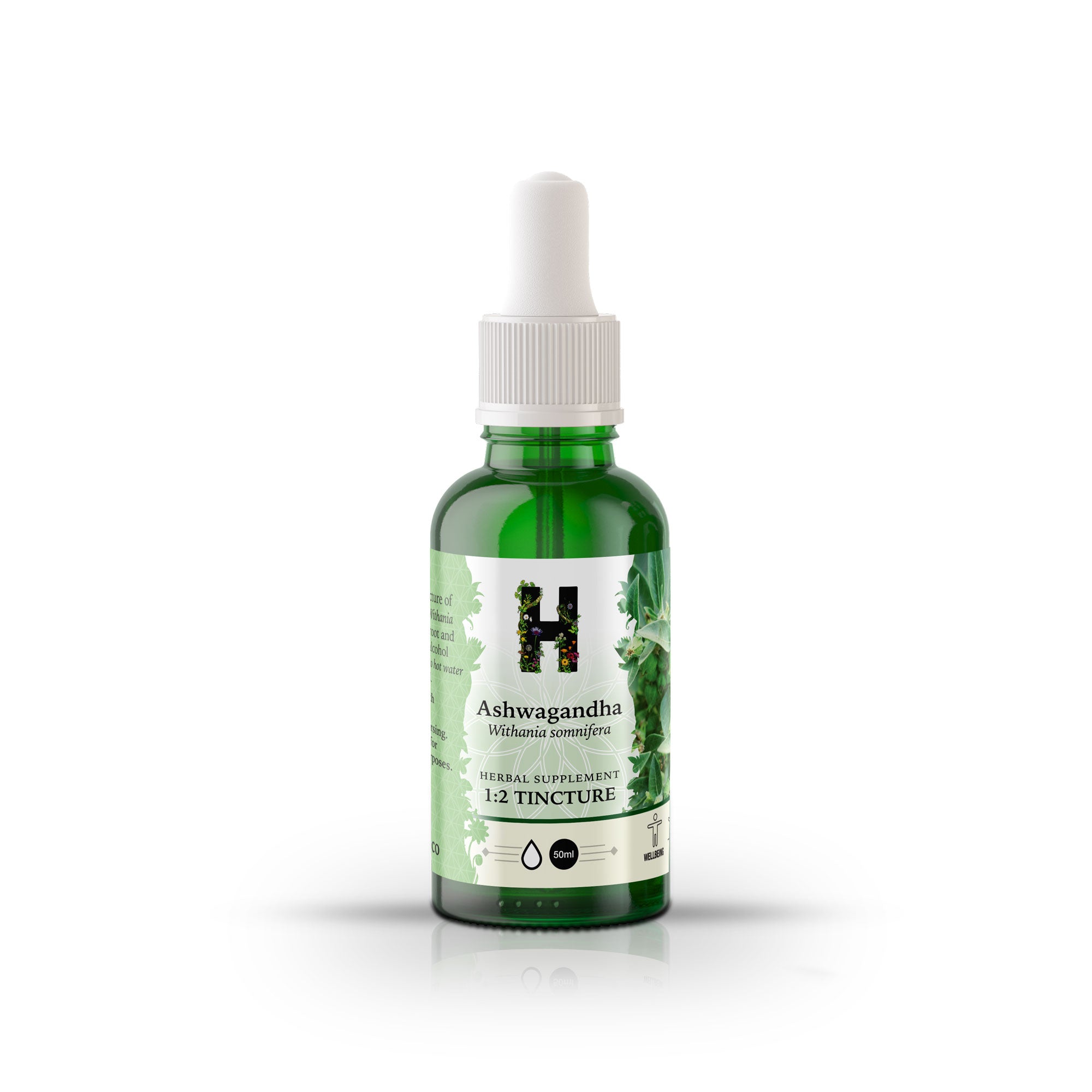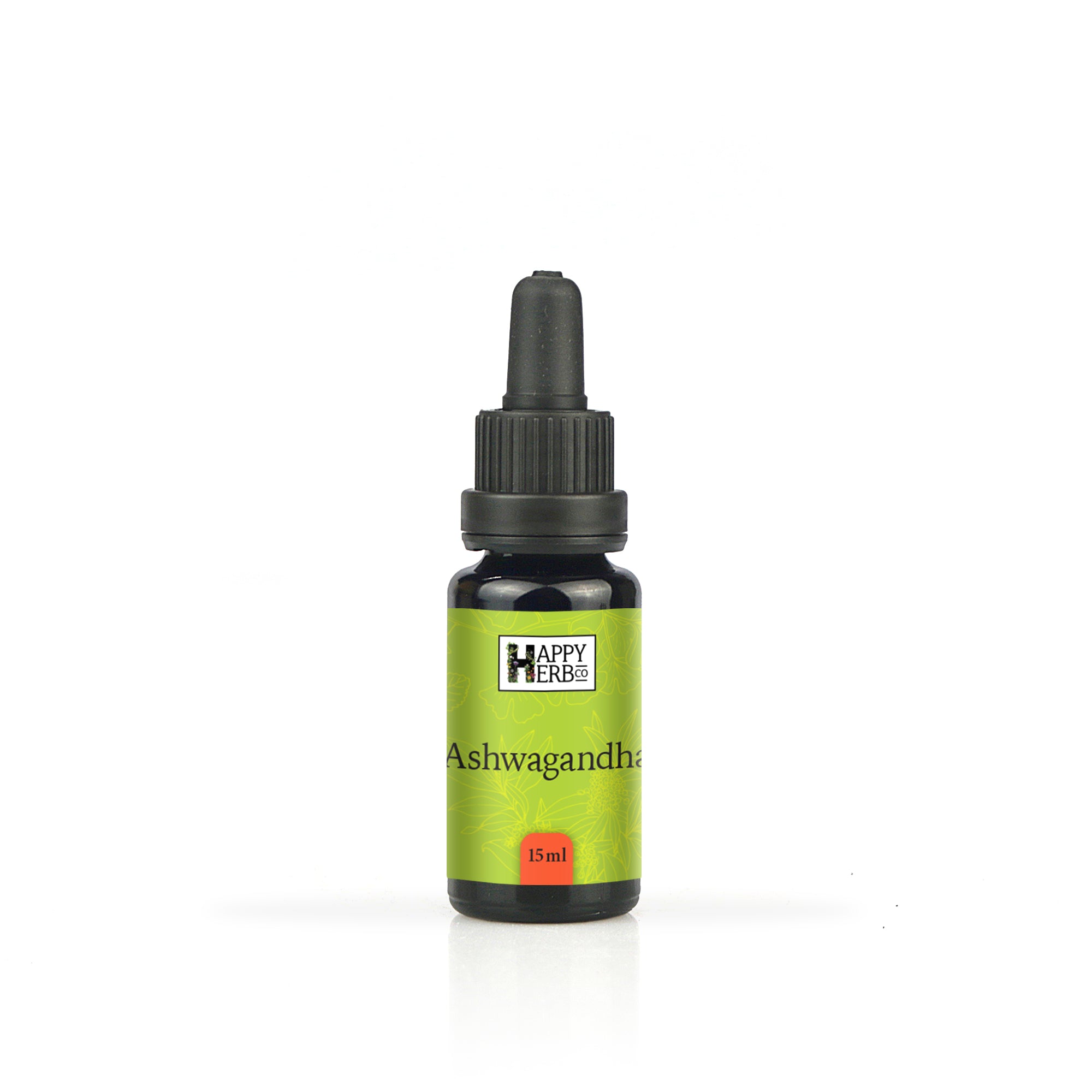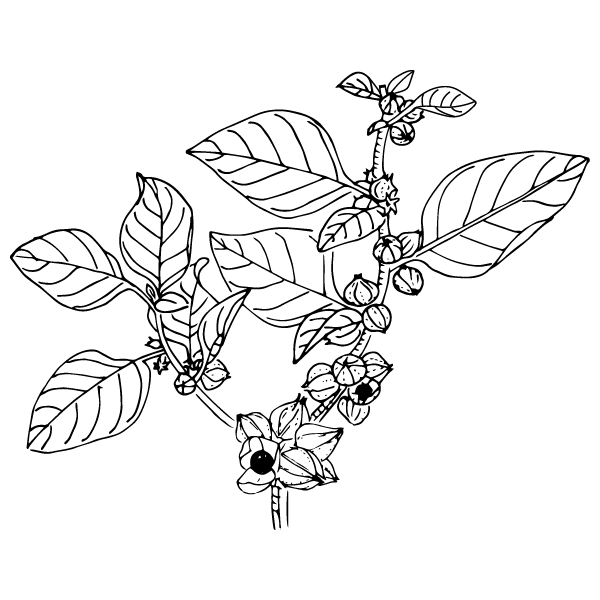
Botanical Name
Withania somnifera
Also known as Indian Ginseng, Winter Cherry, and Withania.
Ayurvedic all-round strengthening tonic. Ashwagandha is particularly high in iron. It is used in Ayurvedic medicine as a tonic for tired or overworked bodies, and is particularly useful for low sex drive in women.
Learn about Ashwagandha
Ashwagandha is one of the most widespread herbs used in India, where it holds a position of importance similar to ginseng in China.
Ayurvedic practitioners have been using ashwagandha for thousands of years in oral and topical preparations as a general tonic and for a variety of health disorders. The Sanskrit word “ashwagandha” means “the smell of a horse,” symbolizing the strength and vigor of a stallion.
Ashwagandha is traditionally prescribed to strengthen the immune system after an illness. It acts mainly on the reproductive and nervous systems, having a rejuvenative effect on the body. It is also used to treat nervous exhaustion, debility, insomnia, wasting diseases, failure to thrive in children, impotence, infertility and multiple sclerosis.
It is well-known as a natural sedative and general stress reliever. The active compounds in ashwagandha have anti-anxiety, antidepressant, anti-inflammatory, and anti-arthritic properties that may be effective in reducing stress caused by physical and emotional fatigue; increasing mental alertness, focus and concentration; relieving nervous tension and anxiety; invigorating the body; decreasing inflammation and balancing out and leveling mood swings.
Ashwagandha appears to inhibit cyclooxygenase (COX), the same mechanism of anti-inflammatory and pain-relieving drugs such as ibuprofen and aspirin. Other uses are that the fruit is rich in saponins and can be used as a soap substitute, and also that the leaves are an insect repellent.
Frequently Asked Questions
Are there herbs backed by science for depression?
Are there herbs backed by science for depression?
Yes. St. John’s Wort has the strongest research support among herbs for mild-to-moderate depression. Rhodiola, Ashwagandha, and also show evidence of stress and mood modulation, albeit with fewer clinical studies. Saffron has growing clinical evidence for improving mood and reducing depressive symptoms, while Lemon Balm may support mild anxiety and emotional balance, indirectly lifting mood.
Can herbs help with low energy from burnout?
Can herbs help with low energy from burnout?
Yes! Herbal adaptogens such as Ashwagandha, Schisandra, Rhodiola and Licorice root help regulate cortisol, rebuild adrenal strength, and combat fatigue caused by long-term stress or burnout.
How do adaptogens like ashwagandha or rhodiola affect mood?
How do adaptogens like ashwagandha or rhodiola affect mood?
Adaptogens help your body adapt to physical and emotional stress by regulating stress-response systems—namely the HPA (hypothalamic-pituitary-adrenal) axis and SAM (sympathetic-adrenal-medullary) system—which balance cortisol levels, reduce fatigue, and enhance emotional balance.
How fast do herbs for energy start working?
How fast do herbs for energy start working?
Herbal stimulants like Guarana or Yerba Mate work within 30–60 minutes.
Adaptogens like Rhodiola or Ashwagandha build gradually, with noticeable effects in 1–3 weeks. Consistency is key—combine short-term energisers with long-term herbal support for best results.
Which herbs should I use for anxiety?
Which herbs should I use for anxiety?
For anxiety support, some of the best herbs include calming nervines which directly soothe the nervous system to reduce anxiety and promote relaxation, and adaptogens which help the body build long-term resilience to stress and balance overall mood and energy.
Some of our favourite herbs for anxiety include:
- Passionflower: Calms nervous tension and supports restful sleep.
- Lemon Balm: Gently uplifts mood and soothes the digestive system.
- Chamomile: Provides gentle relaxation and eases irritability.
- Kava: Deeply relaxes and helps with social anxiety (use cautiously).
- Skullcap: Supports nervous system recovery and eases mental overwhelm.
- Damiana: Uplifts mood, reduces social anxiety and opens the heart
- Blue Lily (Blue Lotus) – Mildly euphoric and heart-opening
- Ashwagandha: Builds long-term resilience to stress and balances adrenal function.
- Tulsi (Holy Basil): Uplifts mood and promotes emotional balance.
- Rhodiola: Energizes while reducing stress-related mental fatigue.
Choosing the right herb depends on your specific anxiety symptoms—whether you need gentle calming, mood support, adrenal balance, or social ease.
What are the best herbs for boosting testosterone naturally?
What are the best herbs for boosting testosterone naturally?
Some of the best herbs for naturally boosting testosterone include Tongkat Ali, which may increase free testosterone and libido, and Ashwagandha, an adaptogen that helps reduce cortisol and support hormone balance. Tribulus is traditionally used to enhance testosterone by stimulating luteinizing hormone, while Pine Pollen offers natural phytoandrogens. Mucuna suports dopamine levels, which can also positively influence testosterone production. Combining these with good sleep, stress management, and regular exercise can enhance their effects.
What are the best herbs for energy?
What are the best herbs for energy?
When you're low on energy, some herbs give you an instant boost (hello, stimulants), while others help build sustainable vitality over time (that’s where adaptogens come in).
Stimulants like Guarana, Kola Nut, Guayusa, Matcha and Yerba Mate work quickly by stimulating the central nervous system — great for short-term focus and alertness. But they can sometimes lead to a crash if overused.
Adaptogens, like Ashwagandha, Rhodiola, and Ginseng, work more subtly — helping your body adapt to stress, balance energy levels, and build long-term resilience.
Some of the best herbs include -
🔥 Stimulating Herbs
For a fast-acting lift in alertness, motivation, and mood
Guarana - High in natural caffeine — boosts focus, endurance, and alertness. Slower release than coffee, so less crash.
Kola Nut - Traditional West African stimulant, rich in caffeine and theobromine. Energises the body and mind, sharpens concentration.
Guayusa - Amazonian leaf with caffeine, theobromine, and antioxidants. Provides a clean, calm energy — like “focused euphoria.”
Cacao - Uplifting and heart-opening. Contains theobromine (a gentler stimulant than caffeine) plus mood-boosting compounds like anandamide and phenylethylamine.
Yerba Mate - Balanced natural stimulant with caffeine, vitamins, and minerals. Enhances energy without the jitteriness of coffee.
Peppermint - Invigorates the senses and clears mental fog. Not caffeinated, but great for a quick pick-me-up via tea or essential oil.
Matcha - Increases focus and energy. Packed with antioxidants that protect your body against the effects of free radicals, and also supports the microbiome.
🌿 Adaptogens & Tonic Herbs - For sustained, balanced energy and stress resilience
Rhodiola - Enhances stamina, reduces fatigue, and improves mood under stress. Great for mental and physical performance.
Korean Ginseng - A powerful tonic for energy, libido, and vitality. Boosts endurance and brain function.
Siberian Ginseng - Gentle adaptogen for long-term stamina, immunity, and stress recovery.
Schisandra - Sharpens mental clarity, improves physical endurance, and supports liver detox — a “beauty + energy” tonic.
Ashwagandha - Restores vitality by balancing stress hormones. Especially good for “wired and tired” or chronic exhaustion.
Maca - Energising and hormone-balancing. Great for mood, libido, and long-term vitality.
Cordyceps - Increases cellular energy, oxygen uptake, and stamina. Often used by athletes for performance.
Gotu Kola - Revitalises the brain, supports focus and memory, and strengthens the nervous system — without being overstimulating.
Suma - Enhances strength, stamina, immune function, and libido — perfect for deep, nourishing vitality.
Common Uses
Adrenals, Anti-Ageing, Anxiety, Aphrodisiac, Arthritis, Back Pain, Cold & Flu, Convalescence, Debility, Depression, Endurance, Energy, Energy Tonic, Erectile Dysfunction, Exhaustion, Fatigue, Fertility, Gout, Immunity, Impotence, Infections, Infertility, Inflammation, Joint Pain, Libido, Longevity, Male Reproductive Health, Mood Enhancement, Nervous System, Oedema, Premature Ageing, Relaxation, Restlessness, Rheumatism, Sexual Anxiety, Sexual Function, Stamina, Stress, Stroke Prevention, Tension, Trauma (Emotional), and Vitality.Herbal Actions
Adaptogen, Anti-Inflammatory, Aphrodisiac, Bitter Tonic, Hypotensive, Immune Tonic, Immunomodulator, Nervine Tonic, Sedative, and Tonic.Recipes
Got a recipe? Submit it here for a chance to be featured on our blog.
Precautions
Cautioned when taking thyroid hormone (i.e. thyroxine) as it may potentiate drug effects. Cautioned when taking immunosuppressant drugs as there is a theoretical reduction in drug efficacy due to the herbs immunostimulant activity. Ashwagandha has theoretical additive effects to antidiabetic/hypoglycemic drugs, antihypertensive drugs and benzodiazepine and CNS depressant drugs. Ashwagandha is best avoided in the first trimester of pregnancy as it may have a stimulatory effect on uterine muscle.
References
References
<http://www.pfaf.org/user/Plant.aspx?LatinName=Withania+somnifera>
<http://www.livestrong.com/article/159038-the-truth-about-ashwagandha-herbs/>
Michael Tierra (1988), Planetary Herbology, pp. 309, Image: by JMK (Own work) CC BY-SA 3.0 via Wikimedia Commons
